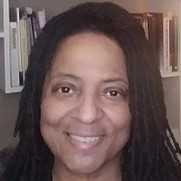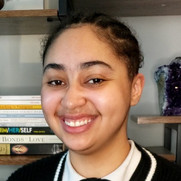CONFERENCE SESSION DESCRIPTIONS AND PRESENTERS
Wednesday, november 13th
Neurodivergence as a Culture – 2:00pm - 3:20pm
Panelists: Desy Whitaker, Jack Turnwald, Jenna Meehan
Moderator: Lou Jent
This panel is to increase cultural competency around neuro affirming language but also to firmly establish that neurodivergence is an emergent sub-culture. We know this because it has created (as all subcultures do) communicative shortcuts for embodied experiences which are shared among varied neurotypes. We will work to debunk the mythology which bolsters stigmatization, because we can attest that people who are different/ multiple neurotypes are in deep relationships of interdependence with/for/and to one another.
Unearthing the Concepts & Tools that Bury Us – 3:30pm - 4:30pm
Presenter: DJ Savarese
Transformative change occurs in the asking. In this session I ask my own questions and, in doing so, encourage you to imagine your ways into a world beyond inclusion. I begin by dismantling the garden walls that confine us, unearthing the concepts and tools that bury us and opening us to new, more expansive ways of understanding ourselves.
Black Neurodivergent Futures in Love, Friendship, and Community – 4:40pm - 6:00pm
Presenters: Kayla Smith, Asiatu Lawoyin and Kaishawna Fleming
Moderator: Ben-Oní
This panel envisions a future where Black neurodivergent individuals lead the way in reshaping how we think about love, friendship, and community. Panelists will share their experiences and insights on creating relational structures that prioritize equity, mutual care, and connection. The discussion will highlight the importance of inclusive, equitable spaces that honor neuroexpansive expressions of intimacy and community, offering radical reimaginings of what love and friendship can look like.
thursday, november 14th
Keynote Presenter: Ly Xīnzhèn Zhǎngsūn, J.D. | 長孫驪新鎮
(Lydia X. Z. Brown)
Cross Neurotype Communication – 10:10am - 11:10am
Presenters: T Land
Neurodivergence is framed not only as a cognitive difference but as a distinct culture with its own ways of connecting and communicating, very often differing from neuronormative expectations and orientations. These differences intersect with other parts of identity, as well as geography. This presentation moves through a comparative analysis of neuroeclectic and neuronormative communication practices, provides a framework for cross-neurotype communication, and pushes the audience to develop more expansive understandings of what it means to be in relationship.
Brave Hearts: Access Intimacy in my High Support Needs Reality - 11:10am - 12:10pm
Presenters: Danny Whitty
I am a high support needs autistic man. This entails a constant calibration between my needs for dignity and autonomy against the real constraints presented by my disability and my available supports. This prompts my explorations of interdependence and true inclusivity, for my own mental well-being and for sharing to inform the broader community of ways to embrace interdependence. In my life, I am fortunate to have siblings who personify access intimacy and model it for others to learn from. My community of fellow nonspeaking individuals with apraxia are another manifestation of access intimacy, one that the world could quite frankly benefit from emulating. I work to amplify this ethos and to encourage others to be brave enough to shift toward embracing interdependence.
Identifying Burnout and Strategies for Management and Recovery – 1:20pm - 2:40pm
Panelists: Jackie Pilgrim, Kaishawna Fleming, Lou Jent
Moderator: T Land
This panel will explore how burnout uniquely affects Autistic and Neurodivergent people, as our individual body/brain chemistries and systems interact with neuronormative expectations, capitalism, and systems of oppression. Panelists will share personal reflections and what strategies they use to support themselves and others in order to prevent, move through, and recover from burnout. So often, burnout is occuring in ways where there isn’t an ability to do all or many of the things our bodies truly need to heal and recover, so panelists will also speak to those experiences where burnout is happening more longer term.
A Personal Reflection on Internalized Ableism – 2:50pm - 3:50pm
Many disabled individuals struggle with internalized ableism (namely, absorbing negative beliefs about their disability from society.) Internalized ableism is often a deeply personal experience, and can appear in many different ways-- some people may feel a deep sense of worthlessness, others may feel frustration, anger, embarrassment, isolation, hesitancy to advocate for themselves, or any combination of these.
A couple years ago, I thought I had mostly overcome internalized ableism. I had fully embraced many aspects of being autistic and took great joy from autism advocacy. However, after experiencing multiple consecutive head injuries towards the end of 2023 and throughout the beginning of 2024, I struggled immensely with the resulting changes and was pushed to re-examine my perspective on productivity and internalized ableism. This session is largely a personal reflection on my experiences with internalized ableism
Presenter: Sam Brandsen
Open Discussion for Conference Attendees - 4:00 - 5:00

This will be a time for attendees to connect with one another. You can come with a thought, a question, a reflection, a poem, a doodle, or nothing at all.
it is a time for collective listening, pondering, swapping, questioning, dreaming, sharing, validating, and holding.
CANDOR Staff (T Land, Azrael Burton, and Lou Jent) will hold the space.
Friday, november 15th
Navigating Conflicting Access Needs and Variable Capacity – 9:00am - 10:00am
Presenters: Leah Broadwell and Mariel Eaves
Navigating conflicting access needs and varying capacities is a nuanced and often complex challenge within the Disabled community. Strategies centered around flexibility, communication, and mutual respect allow co-navigation of needs in ways that honor each person’s dignity and autonomy. Through this presentation, we will explore some parameters for this navigation, as well as offer some concrete strategies.
In preparing for this conversation, we were reminded that we are each other's best educators. Because of this, this segment will be interactive. There will be a time where facilitators will pose a few discussion/reflection questions. Participants can, if desired, submit answers anonymously via
-
Spoken responses (make a recording)
-
Visual responses (search for/upload image)
-
Polls (choose an option)
The submitted answers will be visible for attendees during the session and in the transcription provided post segment. Participation or group sharing is not required to attend. Our hope is that you choose to participate in a way that works for you so we can each leave with a tool-kit/care-web we have co-created together.
PDA (Pathological Demand Avoidance/Pervasive Drive for Autonomy) – 10:10am - 11:10am
Presenter: Lydia Stellwag
This presentation is an introduction to PDA, Pathological Demand Avoidance or Pervasive Demand for Autonomy, a lesser known autistic identity. The social, emotional and cultural needs of PDAers differ from non-PDA autistic people and neurotypical people in specific ways that when met, mitigate significant harm to PDA people and those in relation to them. This presentation will explore these needs and discuss other traits that encompass PDA.
Embracing Taboo – 11:20am - 12:20pm
Presenter: Azrael Burton
The concept of disabled people having sex is often intentionally ignored or only addressed in a scandalized manner outside of the disability circles. Due to this much of the information about how to have a fulfilling sex life as a disabled person can only be learned through trial and error. This presentation aims to analyze the societal impacts on disabled sexuality while also generally demystifying sexual pleasure with a disability. Through embracing taboo we can notice the current failings in conversations about sex as a whole.
Sexuality and Gender – 1:20pm - 2:40pm
Panelists: Jonah Sanville, Abijah Gattis, Kayley Whalen, Mags Ramon
Moderator: Azrael Burton
This panel will explore gender and sexuality from the lens of disability, specifically neurodivergence. Panelists will share their personal journeys and experiences with gender and sexuality. We will discuss societal expectations, personal discovery, and navigating relationships. No panel could fully represent the infinite possibilities of identity, but it is important to acknowledge that the full spectrum of disability is not present across the panel, nor are all racial identities.
Power Dynamics and Abusive Relationships – 2:50pm - 3:50pm
Presenter: Emily Ragland
Let’s have a real conversation about relationships and the way that power and control show up. The most common reason for abuse, neglect, mistreatment and maltreatment is connected to one’s desire to have “The Power”. When we talk about healthy relationships, power can be exchanged back and forth, compromises can be made, honesty is the norm and trust is the foundation. Unhealthy relationships, however, typically result when one person wants to have all of the power to use against the other/s involved. Be it financial, social, emotional, physical, sexual or otherwise power and control are the root of many problematic relationships. Let’s talk about how that shows up, why it shows up and what we can do to even the scales.
Self-care and Relationship with Self – 4:00pm - 5:00pm
Presenter: Maya Brandsen
I will share about life with BPD and OCD in relationships. I have learned a lot about managing intense emotions from my experiences. I also want to talk about how to support yourself and be compassionate towards yourself. Finally, I will discuss how to find a good support systems.of the power to use against the other/s involved. Be it financial, social, emotional, physical, sexual or otherwise power and control are the root of many problematic relationships. Let’s talk about how that shows up, why it shows up and what we can do to even the scales.
.png)

























